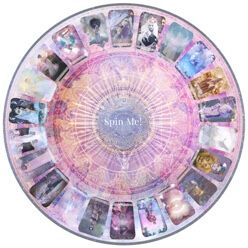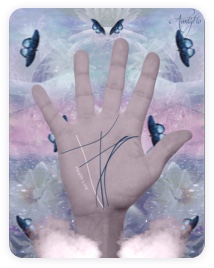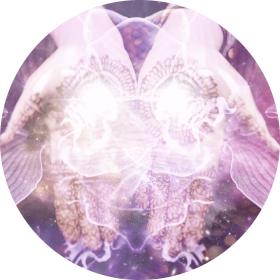About tea leaf reading

Uncover hidden tea leaf meanings
Tea leaf divination is an ancient art.
It reaches people in many cultures all over the world. In total there are over 4000 different types of tea including Earl Grey, black tea, green tea, Rosemary, nettle, calamine, the list goes on. We have heard in recent modern times that herbal tea is favorable to our health. Interestingly any tea which is compressed or flavored in any way is not necessarily suitable for tea leaf reading tea leaves.
Certain types of tea should not be used for fortune-telling endeavours, because of the complexity in the tea making process. In short, when it comes to fortune-telling it is recommended to use proper tea leaves rather than tea bags. Additionally, loose tea provides a much richer and deeper taste than the conventional tea bag. If you don't possess loose tea then I would suggest that you open a tea bag and use the loose tea inside.
The technical term to read tea leaves is called tasseomancy and this is an ancient Chinese fortune-telling method. Tea leaf tea leaf reading is often associated with divination that is easily, straightforward and accurate.
The positive attributes of tea leaf reading tea leaves is that most people possess the equipment required, simply a teacup, loose tea or a tea bag.
Tea leaf reading the tea leaves involves tea leaf reading the variety of shapes that you find in and around the teacup.
No end of strange things are discussed over a cup of tea, and at the finish, it not infrequently proceeds by easy stages to a talk about divination. A refreshing cup of the beverage that "cheers but not inebriates," the leaves that are left behind, and, of course, fortune-telling by this means. In the following pages you will find more than is usually known about this fascinating subject of "cup-tossing," as it is popularly called. Let us look at the matter for a few moments in the light of what we know about this strange faculty of fortune-telling.
I think it was Macdonald, the sober-minded Quaker poet, who said: "what interests a man is man." What he intended to convey was that things receive their interpretation in this phenomenal world, not only by us as human beings, but in terms of our humanity. In other words, things have only that meaning for us which we ourselves import to them. This looks interesting. Proceeding along these lines, we come to the conclusion that mere phenomena, such as a bevy of bees at a swarming, the appearance of a comet in our solar system, the bursting of a great storm-cloud, the picking up of a coin in the street, and a thousand other happenings, have no significance at all in our scheme of thought except that which is dictated by their direct bearing on our current needs. The average man would say " I have no use for these things." In a word, they are devoid of relativity, and as detached phenomena, they are without significance. The real truth is, of course, that they form part of the mosaic of our thought, have their place in the ever-changing kaleidoscope of life, and affect us in a thousand ways of which we have little knowledge. Suppose for a moment that we take away from a man's surroundings all those things that he has " no use for" and blot them out of existence. How much of life would be left for him that would be worth living?
But if for the bevy of bees we substitute the idea of collective industry, for the flaming comet the idea of the firebrands and red-heads of the political and social worlds, these things begin to have some pertinent value in the scheme of his thought.
When, further, we press it home by insisting that these symbols and tokens are capable of an interpretation in relation to himself, the man is disposed to look twice at them. Now in all thought, as in all action, there are two distinct kinds of operation. One is conscious, the other unconscious, one is purposive, the other automatic.
Psychologists will inform you that the submerged or unconscious and automatic part of yourself bears about the same relation to your wide awake self as the submerged part of an iceberg does to that part which is not submerged; that is to say, for everyone part above the waterline there are eight parts below. From this we learn that the greater part of our consciousness is submerged. It is this part of ourselves to which we make appeal when we bring the automatic faculty into play. Child action is spontaneous and instinctual. Mature or adult action is in a greater or lesser degree purposive. All purposiveness action tends to become habitual. When it sinks into the region of habit it becomes automatic.
It then sinks down below the waterline of our waking consciousness and may appear at any time thereafter under the suitable stimulus, either in dream life or as memory in our waking life. But apart from experience acquired, and which in fact has become automatic and subject to external suggestion, the greater part of our real knowledge belongs to the hidden Self within, and which, conceivably, may be in touch with the imperishable Soul of things. It has, at all events, been shown very frequently that this hidden self knows more than the external self has ever learned in the course of its existence, and is responsible for every show of genius, of prophetic faculty, and of inspired action to which from time to time men and women of note are impelled.
It is this hidden Self, the submerged Soul, this consciousness below the water-line, that we make use of in any means of foreknowledge. For it is the source of all divination. Divination in all ages and climes has claimed the attention of serious minds. It is not nearly such a jeu de salon as most people imagine it to be. The astrologists make use of the planets, the luminaries, and even of comets as symbols to be interpreted according to their art. Others have used the entrails of animals, the flight of birds, the colors and shapes of the clouds, etc., as a means of divination.
In China from most ancient times they have used short and long sticks or reeds, called hwei, for divining and foretelling the future. There is even a classic work called "The Book of Transformations" which the great philosopher and reformer, Confucius, highly commended, and often made use of. It is similar to the books on Geomancy which have currency in the West, and which, it may be remarked, Lord Lytton made such clever use of when predicting for his friend Benjamin Disraeli a position and fame second only to that of the sovereign. Divination by the crystal and by the cards is also of high antiquity, and by no means to be despised by the wise and serious because of the abuses to which the triflers of our day have submitted them. The faculty of divination is soul-faculty, and as such, it is implanted by the Creator. It should, therefore, be used—not abused.
In the following webpages auntyflo (Florance Saul) has brought together a number of observed interpretations gathered in the course of inquiry into these subtle phases of human intelligence, and has given them an orderly setting and a modern accentuation.
It is on account of the deep interest I take in all aspects of the " occult" that I have consented to write the overview on of what tea leaf reading means on my website, and it is in the hope that the study of this little work may be the means of leading the reader to investigate still further the hidden laws of our superficial life that I wish it every success.
The faculty of Divination is one that is temperamental and most highly developed in a certain class of individuals, irrespective of the degree of learning or education to which such people can lay claim. Often the most ignorant are the best diviners. It is foolish, however, to presume that the ignorant are more prone than others to believe in these things. Ignorance is allied very closely to suspicion, and a strong sense of self-defence goes along with it. It is rather the most educated who, having come near to the borderland which separates the known from the unknown, are most disposed to seek beyond the threshold of our normal consciousness for an answer to the deeper problems of life.
Whether we regard the groupings of the planets in the heavens, or other of those "signs in the sun and moon and stars " to which the inspired Master directs our attention, or merely the groupings of tea-leaves in a cup, the process of interpretation is radically the same. We are bound to interpret in terms of our common life and thought. We have only one language— Symbolism, and one interpretation thereof—Humanism. Perhaps it is only through the recognition of these facts that the prophecy which says that people shall be of one nation and one language, However that may he, I "Would not have my readers regard this little work as trivial and merely a matter of amusement.
Greater minds than mine have given their whole energies to the task of interpreting natural symbolism, and according to all authorities there never was a time when it did not form an important part in the thought-expression of all peoples with any pretensions whatsoever either to Science or Art. Nevertheless, it would be a dull world if we could not extract a great deal of humor from a cup of tea!
By Florance Saul
Nov 6, 2012







